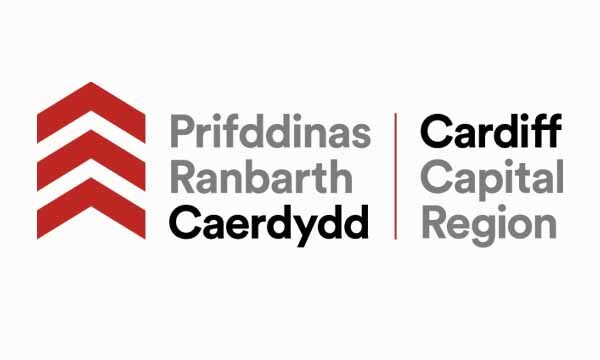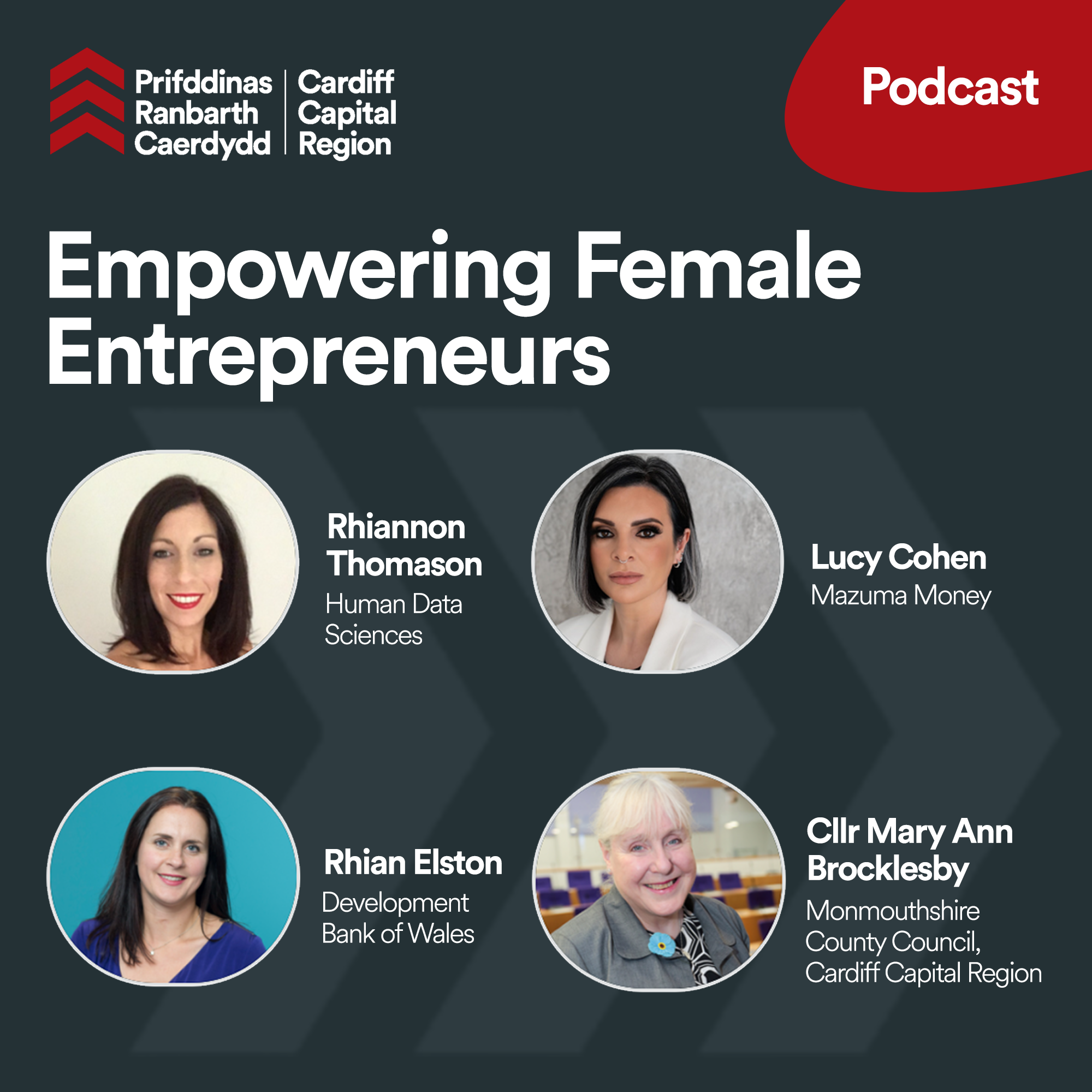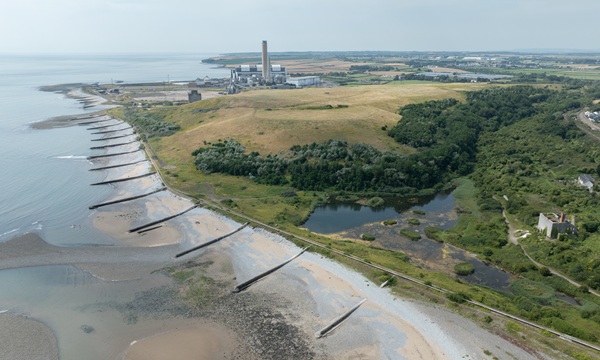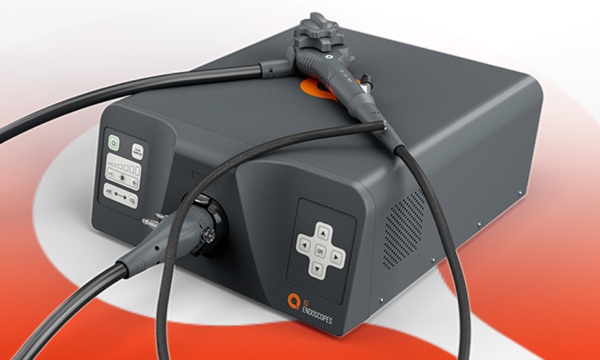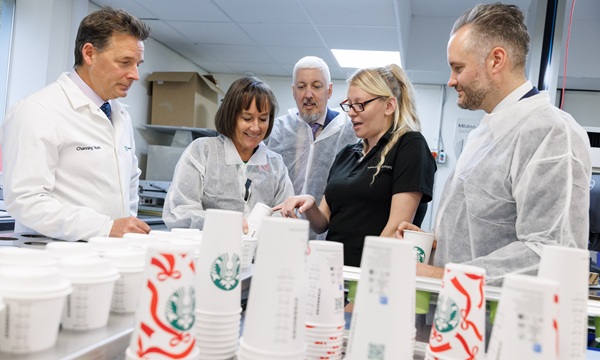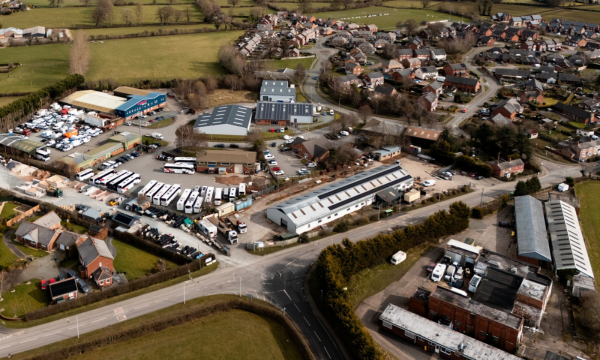Since launch in October 2022, the 23-partner Media Cymru consortium has already made real strides and impact across the Region and beyond, on their journey to make the Cardiff Capital Region a global home for media innovation.
We caught up with some of the Media Cymru team, to learn more about this strong start on their five-year mission to create a green, fair, and economically sustainable hub for media production and innovation here in Wales – embedding research and development (R&D) into a thriving media sector.
Breaking new ground in content, connectivity and infrastructure
“Media Cymru is a Consortium of studios, broadcasters, technology providers, media production companies and educational institutions” explains Professor Justin Lewis, Director of Media Cymru, “so it’s only right that any review of our first year looks at the achievements of some of those consortia members.
“So, for example, Seren Virtual Production has committed £6M to the development of a virtual production hub which will include a research and development academy, in collaboration with Media Cymru, to help the region develop into a global centre for media innovation, with a key focus on training and skills.
“Rondo Media and Boom Cymru, two of Wales’s leading TV production companies, have recruited a Training and Development officer who will lead their Media Cymru project – Breaking Socio-economic Barriers – to engage with local disadvantaged communities, connecting with grass roots talent and providing work placements to bring a more diverse range of people into the industry.
“That theme of fairness runs through everything we do, with Unquiet Media researching the specific barriers and challenges for neurodivergent people who want to pursue a media career.
“In terms of breaking new ground for content, Wales Interactive launched their project Interactive Film Challenge which attracted 120 applications from people worldwide, resulting in 42 people taking part in an online challenge workshop – developing Welsh talent in the new genre of interactive film – held in the Spring.
“Our first year also saw the first round of the BBC Content Innovation Fund, which we think is the first of its kind in the UK, with innovation built into the commissioning process. Little Bird Films and Boom Cymru were both awarded grants to test and implement innovative technologies into their content production, creating new innovative content for commission, informed by a research, development and innovation (RD&I) phase.
“Developing our infrastructure is also key – Consortium-partner Object Matrix have been acquired by DataCore Software, giving them the world-class support of a global concern while still remaining an independent Cardiff-based entity. It means their local cloud Media Cymru R&D project has even more capability to play a key role in the development of a Welsh media hub. That connectivity is an essential ingredient in encouraging creative businesses to collaborate and improve their sharing of hardware infrastructure.”
Funding innovation
“As well as Consortium-led projects for RD&I in the media sector, Media Cymru has a commitment to funding industry RD&I that creates new products, services and experiences”, says Lee Walters, Media Cymru Funding Manager.
“Our Innovation Pipeline has built on the work and learnings of the Clwstwr R&D programme that ran from 2018 to 2023 – as well as being informed by the sectoral knowledge and experience of our Consortium partners. It’s a series of targeted funding rounds and training opportunities available right through to 2025, each designed to develop companies and people across the media sector, both within CCR and throughout Wales.
“It sits at the heart of our strategy to increase the capability of enterprises and individuals to carry out meaningful RD&I from early-stage development through to scale up activity. The result will be more ideas, greater diversity, and stronger growth – and we’re backing that up with further secondary funding competitions, as well as unique training programmes.
“The first Media Cymru Seed Fund took place this year, supported by PDR and Alacrity Foundation, to enable early-stage ideas to be taken through to validated real-world projects.
“We primed the Seed Fund with our Innovation for Creatives five-day course to help emerging talent to develop their first RD&I proposal – and the three-day Ideas Lab three-day course, targeted at freelancers and small businesses looking to understand how RD&I can help their ideas and enterprise.
“This summer, we’re launching the Media Cymru Development Fund which offers Wales-based individuals and businesses up to £50,000 per project to undertake RD&I that demonstrates clear potential for a tangible product, experience or service in the media sector. If you’re interested, you can find out more about the focus of the call – and arrange a 121 with a Media Cymru R&D Producer – through our website.”
Continual insights and measurement
“Continuously assessing the impact and effectiveness of our projects and interventions is a core thread of our work,” says Dr Marlen Komorowski, Senior Research Fellow, “and this first year has already seen our Research and Evaluation team reach significant milestones on providing data and insights across a variety of projects.
“We have launched surveys and data gathering processes that will be used to assess the impact of the Media Cymru programme. Our Baseline Sector Survey is already assessing the economic strength and innovativeness of the sector, our project partners and secondary funded projects; while the Diversity Monitoring Survey has also been launched to monitor the effectiveness of our Equality, Diversity and Inclusion policies by gaining a picture of all those applying for funding with us.
“Beyond that, the University of South Wales launched the Wales Screen Workforce Survey – a talent and capability piece of research that’s been responded to by more than 400 freelancers, employers and employees from across the screen sector. The findings were then presented at the first Culture Change Conference held in March, a conference which explored innovative approaches to improving ways of working in the screen sector. The University of South Wales has since launched a Freelancer Development Fund which provides financial assistance for freelancers to access training opportunities relevant to personal career development.
“The Research & Evaluation team works on several projects concurrently – applying various research methodologies that both support the activities and strengthen our knowledge of the media sector. Those projects include our Innovation in the Media Sector research presented at the Locating Media Industries conference in London and the Broadcasting Regulation in Wales report produced in collaboration with the Institute of Welsh Affairs.
“In the coming months, we will also publish the first Media Cymru Report on our website which will provide insights into the size and composition of the media sector here in Wales – so watch this space!”
Where next for this media sector collaboration?
“The first 10 months have enabled us to build a strong foundation for Media Cymru” says Professor Sara Pepper, Deputy Director of Media Cymru. “Not only in the extensive set-up required for a programme of this size and scale – and kicking off three diverse work packages which contain more than 18 Consortium-led projects – but also funding RD&I within the media industry here in Wales through the Innovation Pipeline.
“That foundation includes launching Media Cymru in Cardiff, London and LA, as well as delivering research and events as part of our Innovation Spaces strand of activity. And we’re only just getting started!
“Coming up before the end of 2023, we’ll have the launch of Greening the Screen – a fund of £600,000 established with Ffilm Cymru Wales to explore how we can make the screen industry in CCR and Wales greener, with a focus on long-term solutions to the industry challenges of reaching net zero. Also in September, we’ll launch Scale Up funding which will make up to £200,000 available for ambitious projects of significant scale, with the potential to be transformational for the media sector and deliver an international impact.
“We’re also looking to deliver an inaugural lecture, welcome our first international Innovator in Residence and carry out more themed activity around our four key pillars – fair, green, global, growth.”
Big thanks to the team at Media Cymru for such a comprehensive (and impressive) update. If you would like to apply for Media Cymru Funding, visit their website at Media Cymru |Innovation Pipeline

